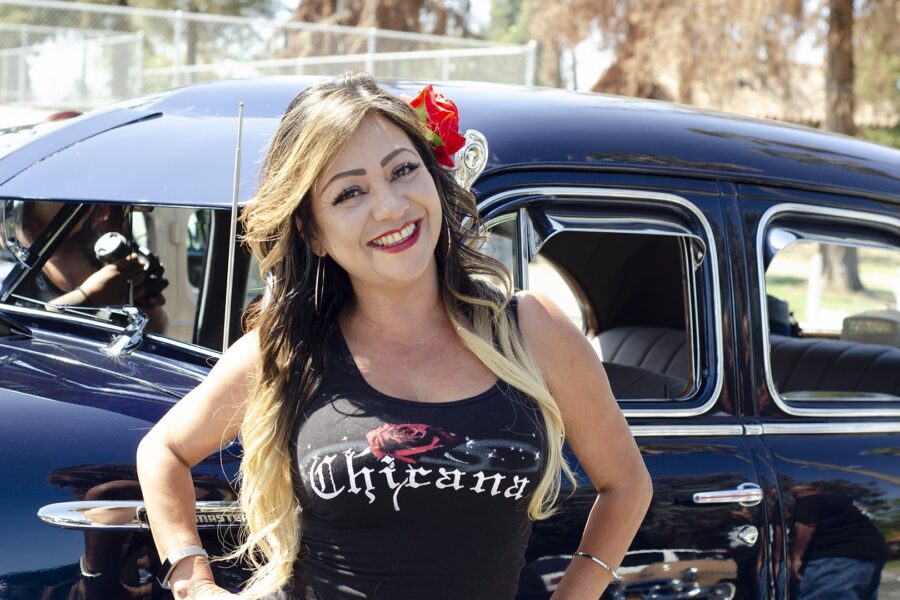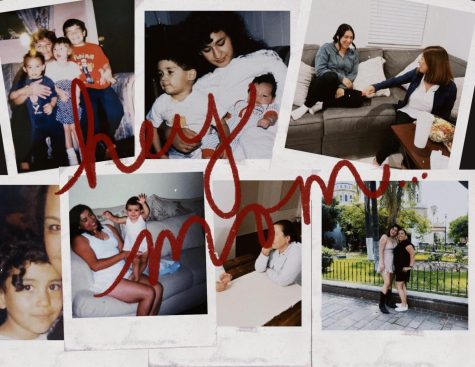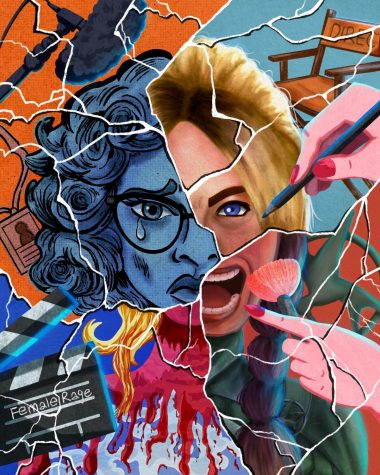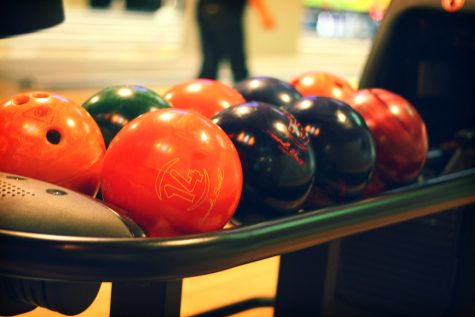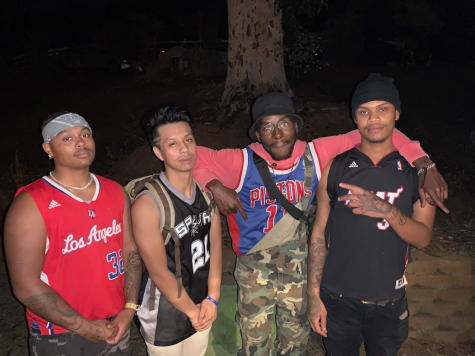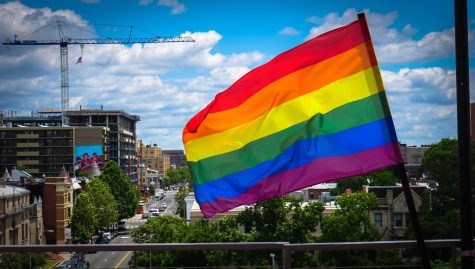Slow and Low
Classic Car Dreams and Zoot Suit Memories are Alive in the Chicano Community of L.A.
Lowriders. Tattoos. Charity. Despite stereotypes like gang affiliation placed on the Latino/Chicano low riding community since its origins in the early 40s, this cultura has evolved into giving back to others and a strong sense of unity.
According to KCET Artbound’s “Cruising Down SoCal’s Boulevards,” the evolution of the Chicano car culture “… became both a symbol of transcendence over socio-economic and racial boundaries, and played a significant role in shaping the identity of West Coast art. Cultura, as many barrio sages know, is a way to keep your head up, to smile now and leave the crying for later when the rancheras and beer in the company of your most trusted homies split you too wide.”
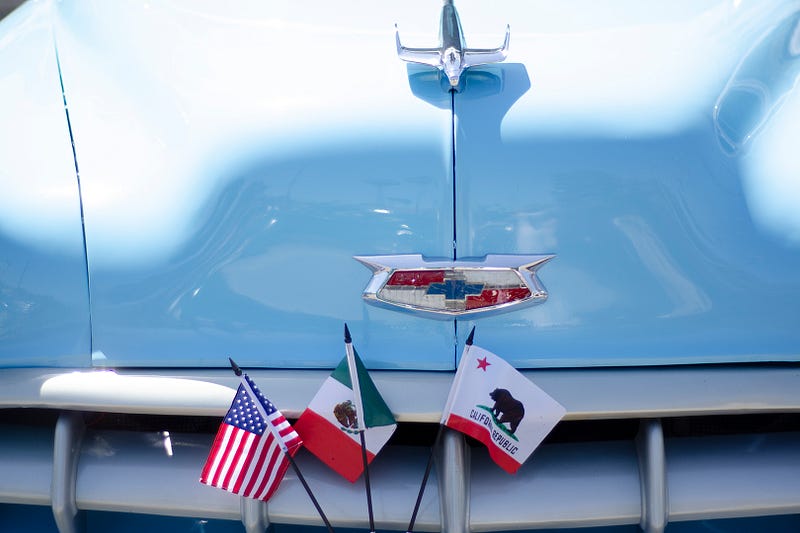
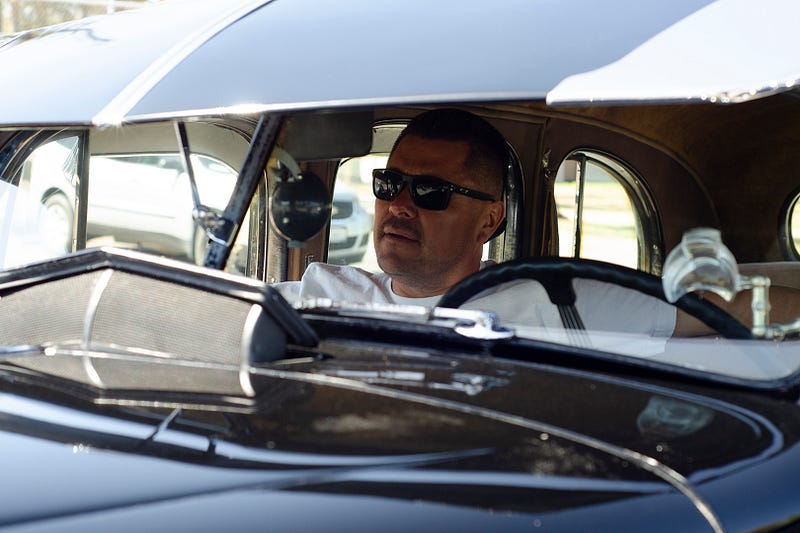
Cruising is defined as, “A prominent pastime of Chicano culture, elevates riding a car to a performance — a public ritual of the street.” Cruises are gatherings where car owners ride their “slow and low” classic cars they’ve worked on with pride.
The 75th Anniversary Zoot Suit Riots Cruise took place in Lincoln Heights on June 3. The cruise was coordinated by a sharp-dressed man everyone knows as “Pachuco” Manny Alcaraz, and Art Zamora, a gentleman who is ensuring Chicano culture is preserved and acted as assistant coordinator.
Alcaraz explained the Zoot Suit Riots, which happened June 3, 1943. The riots were were violent clashes initiated by U.S. servicemen in Los Angeles against Latinos and other minority youth. “The military guys would come in and see the beautiful Chicana Pachucas and they’d be drinking, trying to pick up on them,” Alcaraz explained.
The disrespect from military men toward what at the time was considered counter-culture youth, was added to already heated racial discrimination against black and Japanese individuals. Now, it was aimed at Latino youth as well.
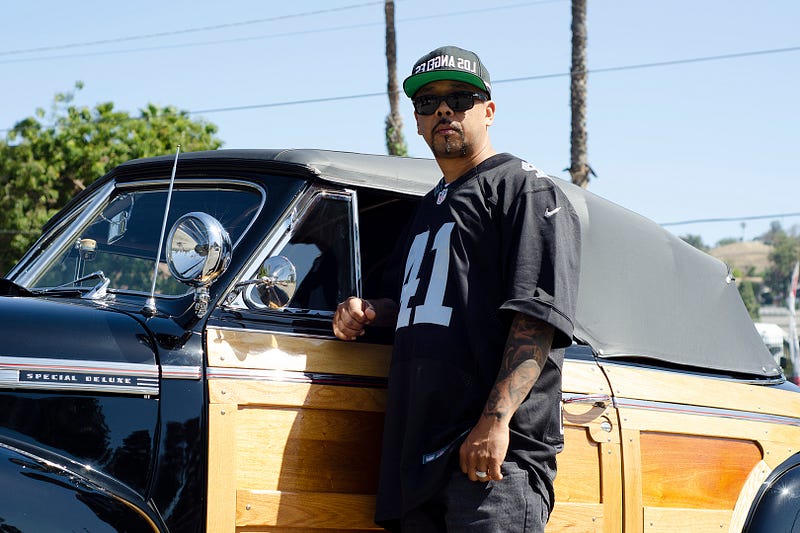
“Pachucos would say, ‘Hey, that’s my girl,’ Alcaraz continued. “Naturally the drunk military guys would come and pick up on them. That instigated the riots,” Alcaraz said.
The stereotypes that were placed on Chicanos that lead to the violence against the youth was unjust, Alcaraz said. There were photos of pachucos on the ground. Ripped their zoot suits up and it was not their fault. Naturally, they were ‘hoodlums.’ That’s not right.”
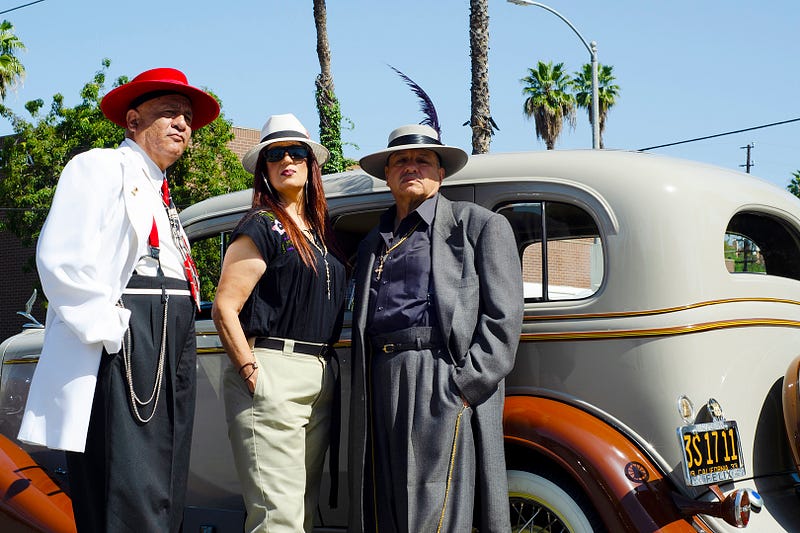
Alcaraz had planned the cruise since January.
“I thought, ‘That’d be bad.’ No one has ever done a zoot suit cruise Downtown L.A. I’m gonna do it in honor of the anniversary.”
Alcaraz said that after he watched the film “Zoot Suit” starring Edward James Olmos, he was inspired to keep zoot suit culture alive. “That did it. I got a zoot suit. I own seven of them. I love history. Especially Chicano history.”
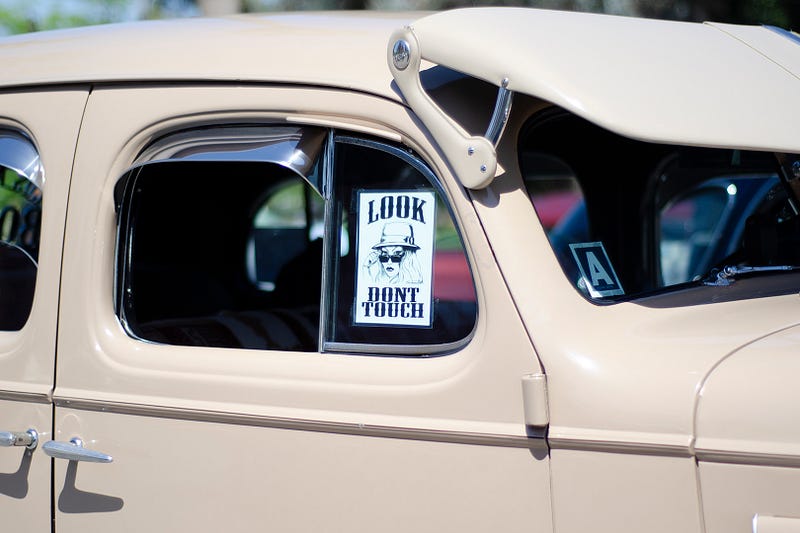
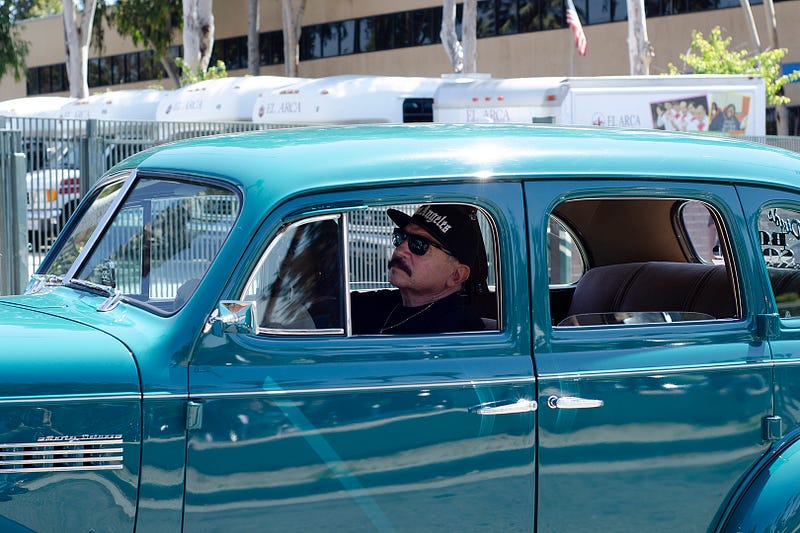
he recognition of generations that came after those who lived through the Zoot Suit Riots and lowrider culture in general is important to many who are in car clubs today.
Alfredo Rodriguez, 43, owner of DMA Commercial Doors, belongs to Blvd Bombs Los Angeles. He said it’s important keep lowrider car culture alive.
“It’s important because it’s our roots. This way, we can pass it onto our children so we can keep it going. Our older generation taught us this and that’s why we’re trying to pass it on.”
Alfredo Morales, 46, Rodriguez’s childhood friend and Blvd Bomb brother, agreed. Morales grew up in the Los Angeles area and his father grew up during the Zoot Suit era. He owns a 1938 Chevy. “For me it’s important because my dad was a zoot suiter.”
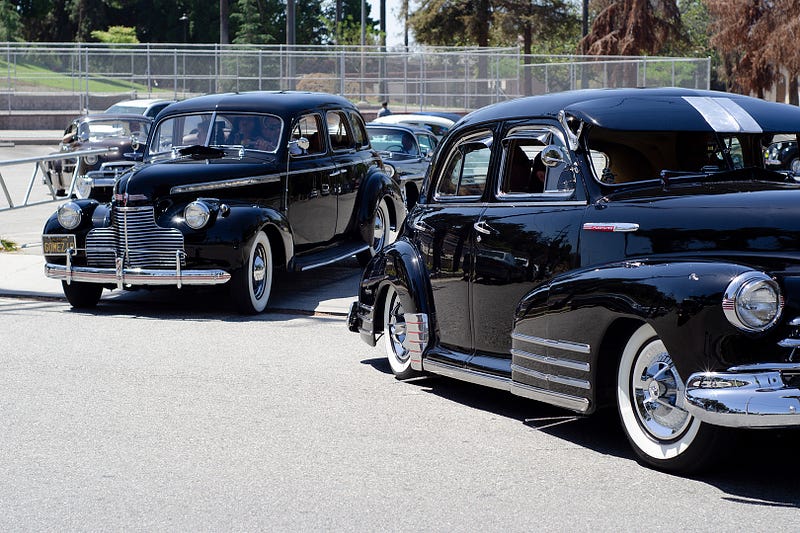
The car club he belongs to, Blvd Bombs Los Angeles, is all about participating in keeping lowrider culture alive.
“We enjoy the lowrider community so we feel we need to support them so that people don’t forget the past history.”
Despite the still-prevalent association with car culture and gangs, 2018 is a different time for car and Chicano culture has evolved into something else. Many car clubs organize in charity work and fundraising within the community.
Morales explained:
“A lot of people think that lowriding has to do with gangs. Not to say that we weren’t gang members. You have people here who at one point were from rival gangs and now we can come together now and get rid of all of that. I’ve never seen a fight at an event like this. Everybody knows the respect or level you need to conduct yourself so that these events aren’t tarnished by negative vibes.”
Blvd Bombs has organized fundraisers for club members’ family who have died, donation events for children during the holidays, fundraisers for local churches.
“There’s a lot of fundraisers and charity events we do. During Christmas, we go feed the homeless,” Rodriguez said. “Help clothe them.”
With the image of low riding and Chicano culture continually evolving while staying true to their roots, there are women becoming more visible in the game.
Ronnie Robles was dressed in a mix of Pachuca and traditional Chicana threads. Guaraches adorned her feet. A zarape was draped her left shoulder. She wore high waisted khaki pants and her belt had a silver buckle with an “R” initial engraved in old English that shone in the sun. “As a chicana, I wanna represent the rest of the Zoot Suiters,” Robles said.
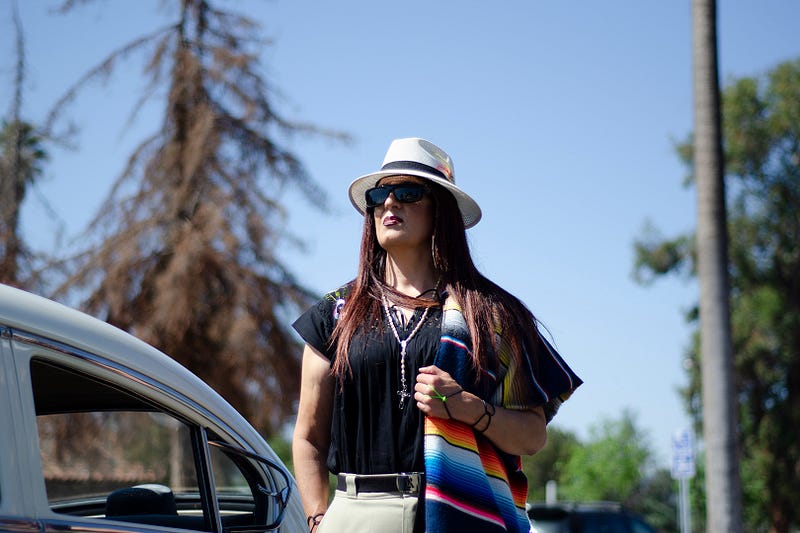
Robles drives her 1951 Chevy Fleetline Deluxe proudly. “I love the lowriding scene. My hubby has the ’41. I said, ‘Hey. I think I can probably drive one of those too.’”
When Robles is in the driver’s seat, men and women are pleasantly surprised when they see her.
“They give me a lot of applause for it. I get a lot if thumbs up, a heads up ’cause not a lot of women drive lowriders. There’s only a few of us, so, that’s pretty cool.”

